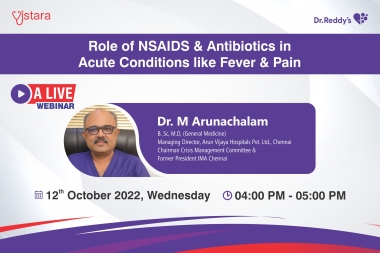test
test
test
test
test
test
test
test
test
test
Brands
Videos
Emerging Trends in Paediatric Cough Management by Dr. Mahesh Kumar
Dr. Mahesh Kumar discusses about emerging trends in paediatric cough management
Emerging Trends in Paediatric Cough Management by Dr. Mahesh Kumar
Dr. Mahesh Kumar discusses about emerging trends in paediatric cough management
Emerging Trends in Paediatric Cough Management by Dr. Mahesh Kumar
Dr. Mahesh Kumar discusses about emerging trends in paediatric cough management
Paediatric Cough Nutritional Considerations and Management by Dr. M. Selvaraj
Dr. M. Selvaraj discusses about paediatric cough nutritional considerations and management
Paediatric Cough Nutritional Considerations and Management by Dr. M. Selvaraj
Dr. M. Selvaraj discusses about paediatric cough nutritional considerations and management
Paediatric Cough Nutritional Considerations and Management by Dr. M. Selvaraj
Dr. M. Selvaraj discusses about paediatric cough nutritional considerations and management
Emerging Trends in Paediatric Cough Management by Dr. M Naga Sai Mano
Dr. M Naga Sai Mano discusses Emerging Trends in Paediatric Cough Management
Emerging Trends in Paediatric Cough Management by Dr. M Naga Sai Mano
Dr. M Naga Sai Mano discusses Emerging Trends in Paediatric Cough Management
Emerging Trends in Paediatric Cough Management by Dr. M Naga Sai Mano
Dr. M Naga Sai Mano discusses Emerging Trends in Paediatric Cough Management
Emerging Trends in Paediatric Cough Management by Dr. M Naga Sai Manoj
Dr. M Naga Sai Manoj discusses emerging trends in paediatric cough management
Emerging Trends in Paediatric Cough Management by Dr. M Naga Sai Manoj
Dr. M Naga Sai Manoj discusses emerging trends in paediatric cough management
Emerging Trends in Paediatric Cough Management by Dr. M Naga Sai Manoj
Dr. M Naga Sai Manoj discusses emerging trends in paediatric cough management
Courses
Medshorts

COVID-19 viral infection found to trigger asthma
COVID-19 infection may play a vital role in initiating asthma pathogenesis. A study published in The Journal of Asthma, aimed to investigate the presence of underlying chronic airway disease in individuals with chronic cough and dyspnoea that lasted longer than eight weeks and were previously infected with Coronavirus and had another unknown lung disease.
The study procured data from 151 patients who were admitted to respiratory diseases outpatient room and had above-mentioned characteristics. Smoking history, the severity of lung involvement during Covid-19 infection, and bronchodilator reversibility test results were recorded. Smoking and forced expiratory volume in the first second (FEV1) were compared.
According to the findings, FEV1, which signifies the severity of obstructive lung disease, increased by 200 mL in 40 patients. In 24 patients, an increase in FEV1 was found to be 200 ml and above, and the percentage of FEV1 was 12% or more. While 14 patients were diagnosed with asthma, 13 patients were diagnosed with non-reversible airflow obstruction (NRAO), and 1 patient was diagnosed with chronic obstructive pulmonary disease (COPD).
It can be considered that viral infection-related asthma may be the underlying cause of prolonged cough and dyspnoea after COVID-19 infection.

COVID-19 viral infection found to trigger asthma
COVID-19 infection may play a vital role in initiating asthma pathogenesis. A study published in The Journal of Asthma, aimed to investigate the presence of underlying chronic airway disease in individuals with chronic cough and dyspnoea that lasted longer than eight weeks and were previously infected with Coronavirus and had another unknown lung disease.
The study procured data from 151 patients who were admitted to respiratory diseases outpatient room and had above-mentioned characteristics. Smoking history, the severity of lung involvement during Covid-19 infection, and bronchodilator reversibility test results were recorded. Smoking and forced expiratory volume in the first second (FEV1) were compared.
According to the findings, FEV1, which signifies the severity of obstructive lung disease, increased by 200 mL in 40 patients. In 24 patients, an increase in FEV1 was found to be 200 ml and above, and the percentage of FEV1 was 12% or more. While 14 patients were diagnosed with asthma, 13 patients were diagnosed with non-reversible airflow obstruction (NRAO), and 1 patient was diagnosed with chronic obstructive pulmonary disease (COPD).
It can be considered that viral infection-related asthma may be the underlying cause of prolonged cough and dyspnoea after COVID-19 infection.


COVID-19 viral infection found to trigger asthma
COVID-19 infection may play a vital role in initiating asthma pathogenesis. A study published in The Journal of Asthma, aimed to investigate the presence of underlying chronic airway disease in individuals with chronic cough and dyspnoea that lasted longer than eight weeks and were previously infected with Coronavirus and had another unknown lung disease.
The study procured data from 151 patients who were admitted to respiratory diseases outpatient room and had above-mentioned characteristics. Smoking history, the severity of lung involvement during Covid-19 infection, and bronchodilator reversibility test results were recorded. Smoking and forced expiratory volume in the first second (FEV1) were compared.
According to the findings, FEV1, which signifies the severity of obstructive lung disease, increased by 200 mL in 40 patients. In 24 patients, an increase in FEV1 was found to be 200 ml and above, and the percentage of FEV1 was 12% or more. While 14 patients were diagnosed with asthma, 13 patients were diagnosed with non-reversible airflow obstruction (NRAO), and 1 patient was diagnosed with chronic obstructive pulmonary disease (COPD).
It can be considered that viral infection-related asthma may be the underlying cause of prolonged cough and dyspnoea after COVID-19 infection.







